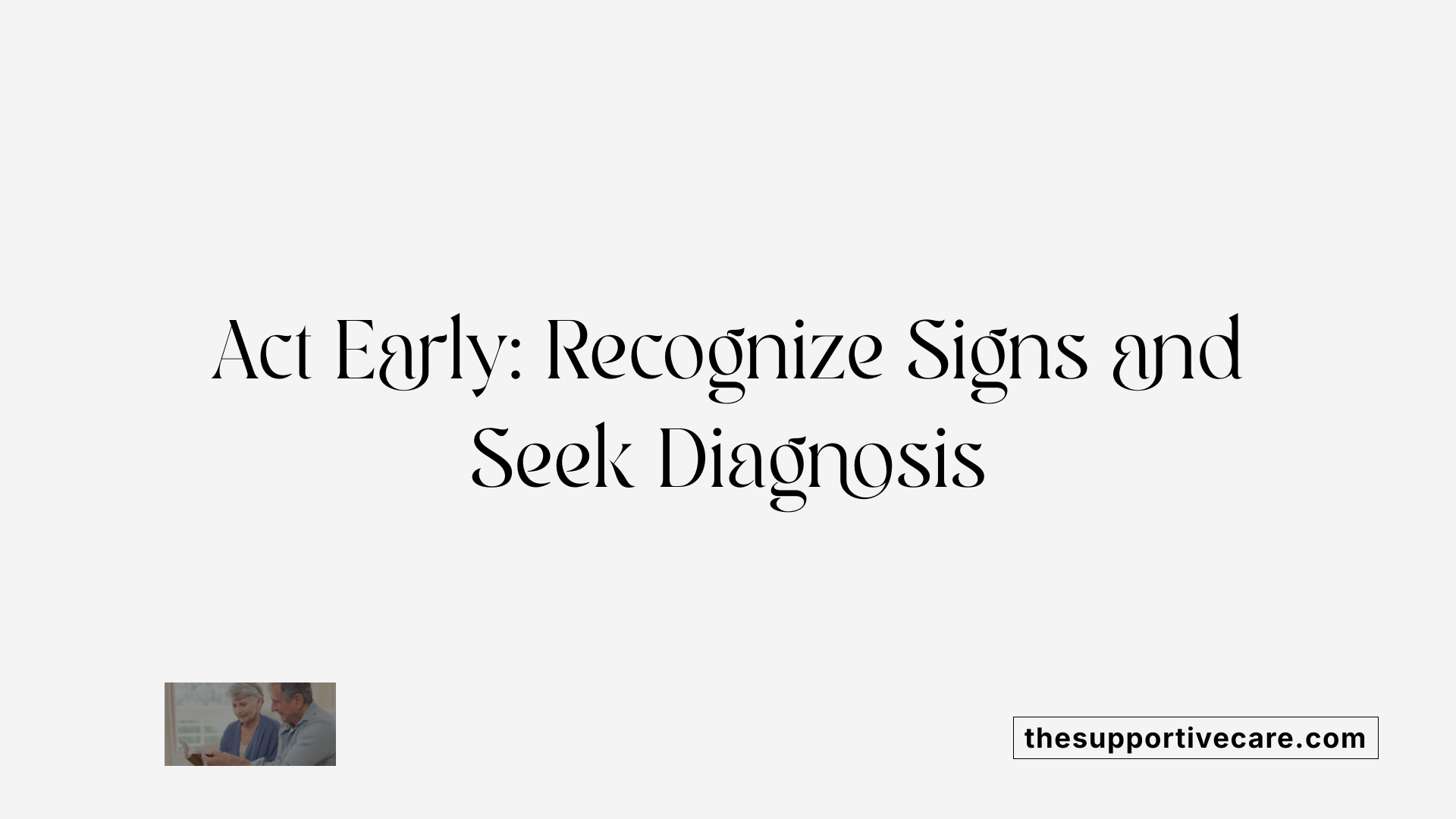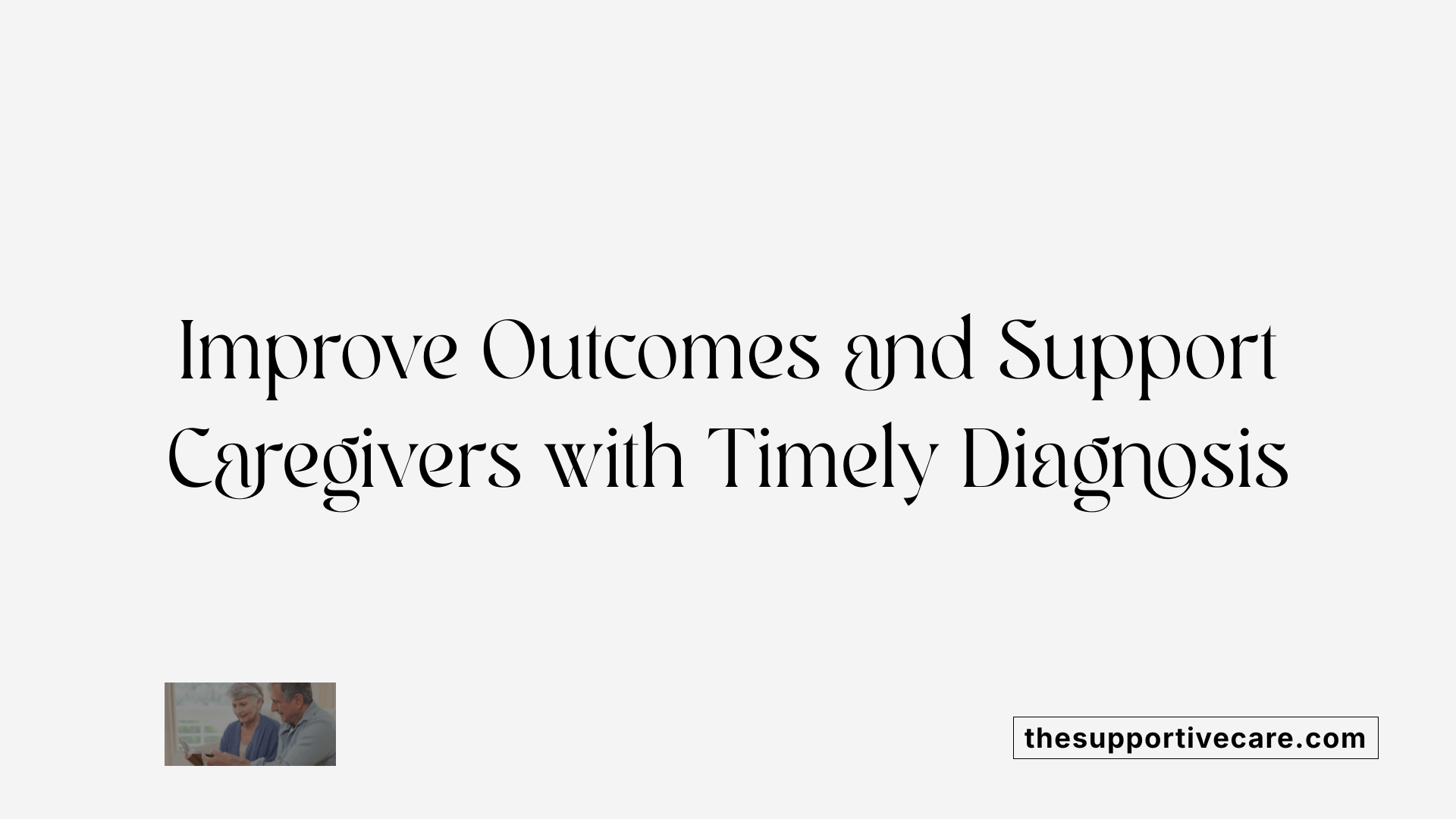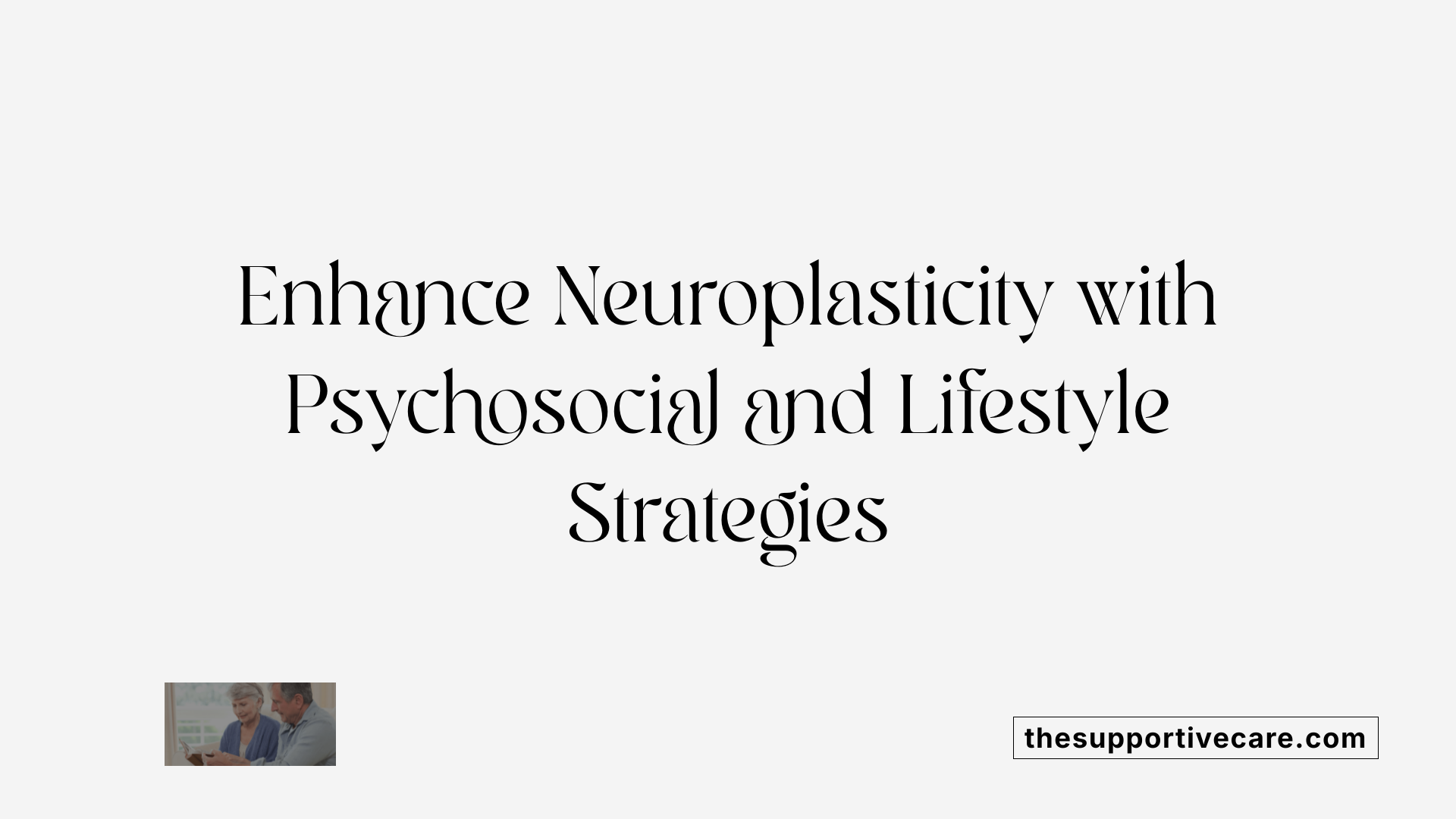Understanding the Critical Role of Early Action
As populations worldwide age, the importance of recognizing and intervening in cognitive decline grows ever more urgent. Early mental health and cognitive interventions have the potential to dramatically alter the trajectory of neurodegenerative diseases like dementia. This article explores the latest research, strategies, and policy implications surrounding early intervention, emphasizing how proactive approaches can preserve brain health, improve quality of life, and reduce healthcare burdens.
What is early intervention for cognitive decline?

What is early intervention for cognitive decline?
Early intervention in cognitive decline means recognizing signs of cognitive changes as soon as possible and acting promptly to manage them. It involves engaging with healthcare professionals early to obtain a proper diagnosis, discuss the expected progression, and explore treatment options.
Timely medical consultation helps establish an accurate assessment, which might include screening tests like the MoCA, Mini-Cog, or MMSE. These tools enable early detection of mild cognitive impairment (MCI) or early dementia, critical for delaying further decline.
Developing an individualized care plan is a central part of early intervention. This plan may encompass medication management, lifestyle modifications such as increased physical activity and healthy eating, and cognitive training. Regular monitoring of symptoms and safety issues—like driving ability, home safety, and daily functioning—allows for proactive adjustments.
Supporting individuals and families is equally important. Providing education about the condition, connecting them with community resources like memory clinics or support groups, and ensuring emotional support can significantly improve quality of life.
Overall, early intervention aims to preserve cognitive abilities, enhance safety, and empower individuals and their loved ones. Acting early not only delays progression but also ensures that patients receive the necessary care and support at a stage when it can be most effective.
For those interested in exploring strategies for early detection and management, searching terms like "early intervention in cognitive decline strategies" can offer further insights into available approaches and ongoing research.
Why is early intervention crucial for dementia?

Benefits of early detection
Early diagnosis of dementia enables individuals and healthcare providers to start appropriate interventions sooner. Identifying signs such as forgetfulness, difficulty with familiar tasks, and confusion at an early stage allows for timely management of symptoms. This proactive approach can slow disease progression, maintain daily functioning longer, and improve overall quality of life.
Improved patient outcomes and management
With early intervention, patients can access treatments that address both cognitive symptoms and behavioral issues. Although there are currently no cures for dementia, medications and lifestyle changes introduced early can help preserve cognition and reduce agitation or depression. Personalized care plans, caregiver support, and lifestyle adjustments like nutrition and exercise are more effective when implemented early.
Supporting caregivers and delaying institutionalization
Caring for someone with dementia is challenging, but early diagnosis provides caregivers with valuable resources and guidance. It also allows families to plan ahead for future needs and make informed decisions. Early support can reduce caregiver stress and prevent premature institutionalization by enabling home-based care and community involvement for longer periods.
Contributing to research and treatment development
Early diagnosis opens opportunities for individuals to participate in clinical trials and research studies. These contribute to a deeper understanding of disease mechanisms and facilitate the development of new, more effective treatments. Moreover, recognizing early signs helps health systems refine screening tools and improve the overall approach to dementia care.
| Aspect | Impact | Additional Notes |
|---|---|---|
| Early detection | Better management | Allows for timely intervention to slow decline |
| Patient outcomes | Improved quality of life | Maintains independence longer |
| Caregiver support | Reduced burden | Provides guidance and resources early |
| Research contribution | Advancement of treatments | Enables participation in clinical trials |
How does early mental health intervention support brain resilience?

Promotion of neuroplasticity
Early mental health support fosters brain resilience by stimulating neuroplasticity—the brain's ability to reorganize itself through new neural connections. Psychosocial interventions, such as therapy and social-emotional learning programs, promote synaptic growth and neurogenesis, especially in brain areas vital for emotion regulation and cognition like the hippocampus and prefrontal cortex. When adverse experiences during childhood or adolescence are addressed promptly, they help prevent maladaptive plasticity linked to depression and anxiety. Moreover, lifestyle behaviors encouraged through early care, such as regular physical activity, mindfulness practices, and social involvement, further enhance brain adaptability, supporting long-term cognitive health.
Impact of psychosocial and behavioral support
Psychosocial support, including counseling and community engagement, creates environments conducive to emotional stability and neural recovery. Such interventions improve stress management, reduce feelings of loneliness, and build resilience against mental health challenges. Behavioral strategies like cognitive-behavioral therapy (CBT) or mindfulness-based stress reduction (MBSR) can alter neural pathways associated with negative thought patterns and emotional dysregulation, fostering healthier brain functioning.
Health behaviors linked to brain health
Healthy behaviors play a crucial role in maintaining and enhancing brain resilience. Regular physical exercise boosts blood flow and neurotrophic factors, which support synaptic connections and cognitive resilience. Nutrition rich in omega-3 fatty acids, antioxidants, and vitamins contributes to brain repair and protection. Adequate sleep and stress management are similarly essential for sustaining neuroplasticity and emotional well-being. These behaviors, when adopted early, can act as protective factors against age-related decline and neurodegenerative diseases.
Mitigating adverse experiences and stress
Recognizing and intervening early in cases of adverse childhood experiences (ACEs) or chronic stress can significantly influence long-term brain health. Supportive familial and community environments help buffer the negative effects of early trauma, reducing long-lasting impacts on immune and neurological functions. Stress reduction techniques and resilience-building strategies incorporated into early interventions mitigate the harmful effects of prolonged psychological stress, which is known to impair neuroplasticity and accelerate cognitive decline.
| Aspect | Benefit | Related Support Strategies | Impact on Brain Resilience |
|---|---|---|---|
| Neuroplasticity | Enhances synaptic connections | Psychosocial therapy, cognitive training | Strengthens neural circuits to adapt and recover |
| Psychological support | Reduces emotional distress | Counseling, social support networks | Promotes emotional regulation and coping skills |
| Health behaviors | Maintains brain vitality | Exercise, balanced diet, adequate sleep | Protects against degeneration, promotes growth |
| Stress mitigation | Lowers chronic stress levels | Mindfulness, community programs, family support | Prevents maladaptive plasticity, supports resilience |
By implementing early mental health interventions that focus on these areas, we can bolster brain resilience across the lifespan, reducing the risk of depression, cognitive decline, and neurodegenerative diseases. The integration of psychosocial, behavioral, and lifestyle strategies in early care models is fundamental to fostering a healthier, more adaptable brain.
Prevention strategies to delay cognitive decline
What prevention strategies can be employed to reduce cognitive decline through early mental health and social intervention?
Preventing cognitive decline involves a broad, coordinated effort targeting multiple aspects of health and well-being. Lifestyle modifications are at the core of effective prevention. Engaging in regular physical activity, especially aerobic exercises like walking, swimming, or team sports such as tennis, can significantly boost brain health by improving cardiovascular function, stimulating neuroplasticity, and increasing neurotrophic factors that support neuron growth.
Maintaining an active social life and strong support networks is equally important. Social engagement through community groups, volunteering, or learning new skills can enhance mental resilience and reduce the risk of loneliness and depression, which are linked to cognitive deterioration. Dietary habits also play a role; adopting a healthy diet rich in fruits, vegetables, whole grains, lean proteins, and omega-3 fatty acids—such as the Mediterranean diet—has shown protective effects.
Managing vascular risk factors like high blood pressure, diabetes, and high cholesterol is essential, since vascular health is closely tied to brain health. Avoiding smoking, controlling blood sugar levels, and ensuring sufficient sleep quality further contribute to reducing risk.
Early screening for individuals at risk allows for timely intervention, while multicomponent lifestyle programs that combine physical activity, dietary counseling, cognitive training, and vascular risk management have demonstrated promise in delaying cognitive decline.
Research supports that a proactive, multidisciplinary approach—integrating medical, social, and behavioral strategies—can substantially decrease the likelihood or delay the onset of dementia and other age-related cognitive issues. This comprehensive effort underscores the importance of early and sustained intervention in preserving cognitive function well into older age.
The future of early detection and personalized care
How are digital health technologies shaping early detection?
Advances in digital health are transforming how we identify early signs of cognitive decline. Mobile apps, wearable devices, and unsupervised at-home cognitive testing enable frequent, accessible screening outside clinical settings. These tools offer continuous monitoring and can detect subtle changes in cognition and behavior over time, facilitating earlier intervention.
Innovative platforms, like AI-driven reminder systems, help maintain adherence to assessments and cognitive training routines. Research from initiatives such as the APPT project underscores that understanding individual motivations and barriers enhances engagement with digital interventions. Personalized technologies predict adherence and adapt strategies accordingly, making early detection more practical and scalable.
Overall, digital health tools hold the potential to cast a wider net for early diagnosis, especially when integrated within comprehensive care pathways that utilize bioinformatics and machine learning.
Building a Collaborative Approach for Brain Health
The path to mitigating cognitive decline and promoting brain resilience lies in early detection, timely intervention, and a holistic, multi-sector approach. Integrating medical, psychological, social, and technological strategies can create personalized care pathways that support individuals throughout their aging journey. Policy initiatives, public health campaigns, and community-based programs are vital to raise awareness, reduce stigma, and expand access to preventive services. As research advances, harnessing innovations like digital assessment tools and neurobiological biomarkers will enhance early diagnosis and targeted therapies. Ultimately, fostering a culture of proactive cognitive health maintenance can lead to a future where aging populations retain independence, cognitive clarity, and quality of life for longer.
References
- Early intervention for cognitive decline: is there a role for ... - PubMed
- Prevention and early intervention in youth mental health: is it time for ...
- can cognitive training be used as a selective prevention technique?
- Why Early Intervention for Mental Health Is So Important
- Cognitive Decline and Dementia: Early Detection and Intervention in ...
- [PDF] Prevention of and Early Intervention for Cognitive Decline Due to ...
- The Role of Childhood Adversity and Social Drivers of Health ... - CDC
- Cognitive health treatment priorities and preferences among young ...
- Psychotherapeutic interventions in individuals at risk for Alzheimer's ...



































































































